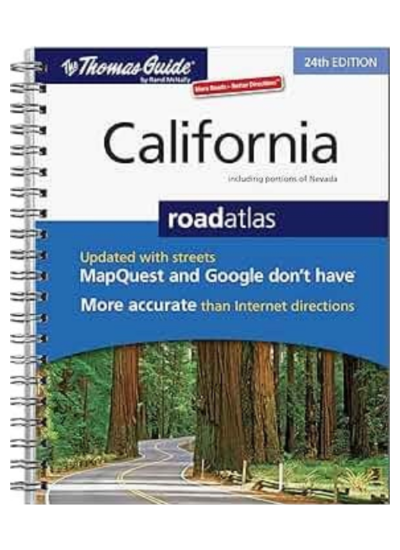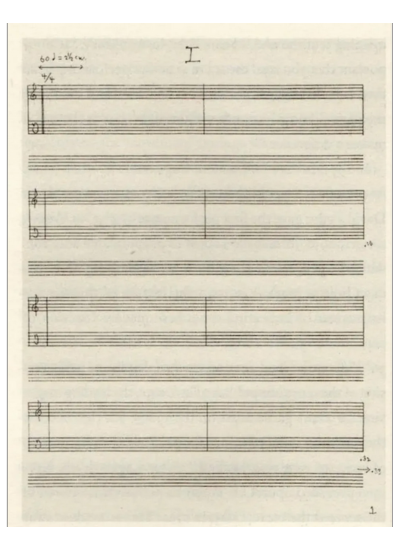11 July, 2024

Doxa
The appendages we now call our personal devices seem as naturally grafted onto our hands, wrists, perhaps even face, as the clothes that don our bodies. There is little to no interrogation of the fact that our lives are mediated nearly every waking second by digital technologies. For example, we don’t question the multiplicity of our phones as alarm clock, telephone, television, biometric assistant, companion.
Digital technologies in 2024 fit securely within the class of doxa, a term Roland Barthes defines as “the mind of the majority, petit bourgeois Consensus, the Voice of Nature, the Violence of Prejudice.”[1] Not to be confused with the truth, it is that which is considered to be self-evident, apparent, natural.
Our technologies have shifted away from the realm of invention to nature, the mindset of of course: Of course I carry my phone everywhere. Of course I can scan the QR code menu. Of course I’ll pay the bill with my phone. Of course my phone tracks my movements, my interests, my purchases. These objects and their conveniences, which we take for granted, are no longer a source of novelty or wonder, but of reliance and reliability. It may not be our first thought when it comes to our phones, but they (and other technologies) are by definition tools, helping us navigate daily modern life. However, once we dismiss their existence as tools and give credence and weight to the “natural,” i.e. that which occurs untested and unquestioned, we seal it hermetically and allow it in its isolation the privilege of universality and truth. (Or rather, the semblance of “universality” and “truth.”)
In response to this passive attitude towards technology, an impulse that must be cultivated in oneself is the instinct to ask after alternatives; to test, to question the supposed “natural” order of things.
Benefits of the Technics Framework
Stiegler’s concept of technics sets aside technology proper in favour of analyzing the human forces behind the creation and use of technology. In an article about Stiegler for Aeon (which served as my starting point for these reflections), Bryan Norton explains that technics is “what makes us human. Our unique way of existing in the world, as distinct from other species, is defined by the experiences and knowledge our tools make possible[.]”[2]
Technics is the mediation of lived reality by the tools which we created: tools = mediators = technology.
Through this approach, we can begin to open up the closed circuit of the “self-evident” presence of technology in our lives. We can start asking questions. What is our relationship to these technologies that mediate our selves and the physical world in which we live? Importantly, what features built in to these technologies do we consider as natural to these technologies, as opposed to features that need to be resisted, tested, questioned?
One benefit of technics is allowing us to start thinking of an alternative way of understanding technology not as a given thing in today’s digital age, but as a co-creator of reality and our fully lived lives. To think of technology as tools is to begin this crucial act of separation: acknowledging that devices are not appendages, but discrete apparatuses that we have the ability to set aside and pick up as needs dictate.
Technics also allows us not just to think about technologies as tools, but to dissect the concept of the tool as itself a tool: for critical thinking, for finding alternative perspectives, and for fostering a hopeful outlook in an otherwise dread-filled digital landscape.
Technics ultimately invests into the digital age a rare sense of hope. It exercises the critical thinking muscle that helps us use these tools intentionally in order to reject the exploitative aspects of technology. In this way, we begin to see the possibility of agency against invisible yet pressurized forces (simply: capitalism; more advanced: technofeudalism; final boss: accelerationism??).
Reliance and Atrophy
Older generations have cyclically rung the death knell on youth’s varying losses by way of emerging lifestyles, values, and technologies. This is not that: this is questioning the processes thought to be natural for the purpose of finding better, more hopeful alternatives to the digital dread that plagues many. It is not placing the blame of younger people for their somnolence, but interrogating the cause of such dazedness against the tools that were supposed to be helping them in the first place(!!!).
One particularly nefarious aspect of not questioning “that which goes without saying”[3] is the inevitability of atrophy. What skills have we left to wither by relying on the crutch of technology? I muse on some anecdotal examples below, which I hope don’t veer too much towards generalization.
GPS
I remember the road atlas book we had in the car growing up, tracing highways with my fingertips. I remember my mom’s printouts of MapQuest directions to our relatives’ house in Santa Clarita, shuffling the sheafs as we took turn after turn. I remember my dad missing an exit (many exits) and reframing it as “exploring the neighbourhood” with a sheepish smile.

Now I see my dad queueing up directions home on Waze by default, not even for real-time traffic updates but just to have it there. Another passenger in the car. And he still misses exits. I know friends and family who do the same, loading up their GPS unthinkingly as opposed to exercising muscles of recollection. I don’t drive and my reliance on my city’s transit app is unwavering — but only for places I’ve never been and for transit schedules that love to lie.
Encouragingly though, I know friends and family who seem to have avenues and highways etched on the backs of their hands, confidently taking backstreets and alternative routes that make them seem like seasoned cab drivers.
Handwriting
A number of my university professors emphatically disavowed all forms of non-analog notetaking. I think innately I never doubted the benefits of handwriting on paper for comprehension and retention, never needing to read the studies on its benefits in contrast to typing up notes and other digital methods. (However, not relying on this assumption of of course, I tried taking notes on my laptop once. I did not absorb a thing and never returned to those notes after the lecture.)
I did see the skill of handwriting atrophy in real time during university as I observed other students. On average I’d estimate the ratio of laptop users to paper writers to be 70/30 in any one of my classes. I don’t know how well they did or did not do in those classes, though that isn’t the point really. The point is that yet another material process was mediated by a technology.
It is interesting to note that writing is, in a way, itself a technology. Jacques Derrida identifies the same argument in writing[4] I’m attempting to put forth here: that writing is a tool that records information, which immanently holds the possibility of reliance upon it, discouraging people to exercise the muscle of remembering.
However, I do think the digital age has accelerated this practice exponentially. Writing, and perhaps language itself, has been displaced by photos and videos taken on our phones. The capacity of phone storage today would certainly be unthinkable to the NASA engineers who sent people into space in the 1960s with the aid of a 74-kilobyte ROM found inside the Apollo guidance computer. This word document I’m currently working on is likely larger in size than that, let alone the photos and videos a person takes on their phone daily.
Silence
John Cage’s (in)famous modernist composition 4’33 contains three separate movements. In each movement, musicians are instructed not to play. In this “absence of intended sounds” musicians and audience alike are confronted by the enormity not of silence, but of what sounds fill a space intended for silence. Chairs squeaking, people coughing, doors swinging open and closed.

At the first performance of this piece in 1952, some people apparently got up and left—not an unreasonable reaction. The impossibility and absurdity of silence has only amplified today, with our devices acting in better times as balms, in worse cases as the agent of debilitating brain rot.
Recently while spending about 15 minutes looking for something to watch on my phone as my lunch grew cold, it became clear to me how often I plug my ears (and stimulate my vision) just to make time contract. I plug my ears almost spitefully, angrily, or perhaps in active ignorance, at the thought that this is the only life that I’ll live. I seem to hasten to hasten those seconds, finite as they are. During more unpleasant tasks, I shove my earphones into their home canals with the singular aim: to drown. I can’t do dishes or walk to the train station without filling my ears with music or podcasts or commentary.
Realizing this, I’ve begun trying to make more of an effort to allow for silence, which is not really silence. Because 4’33 is not silence, it is the unique blend of ambient sounds of every scene of life. So I try to listen for birdsong and leaves rustling as was my practice back when I was in high school. I try to feel the warmth of the sun in a place that snows half a year. I eavesdrop on other commuters to live as another for a bit.
I open myself up to the arrhythmias and accidents and sonorities of life.
June - July 2024
Footnotes:
1. Barthes Roland, and Richard Howard. Roland Barthes by Roland Barthes. London: Vintage Classics, 2020, 47.
2. Norton, Bryan. “Our Tools Shape our Selves.” (Aeon. 1 April 2024). https://aeon.co/essays/bernard-stieglers-philosophy-on-how-technology-shapes-our-world.
3. Barthes, vii.
4. Norton, Aeon.